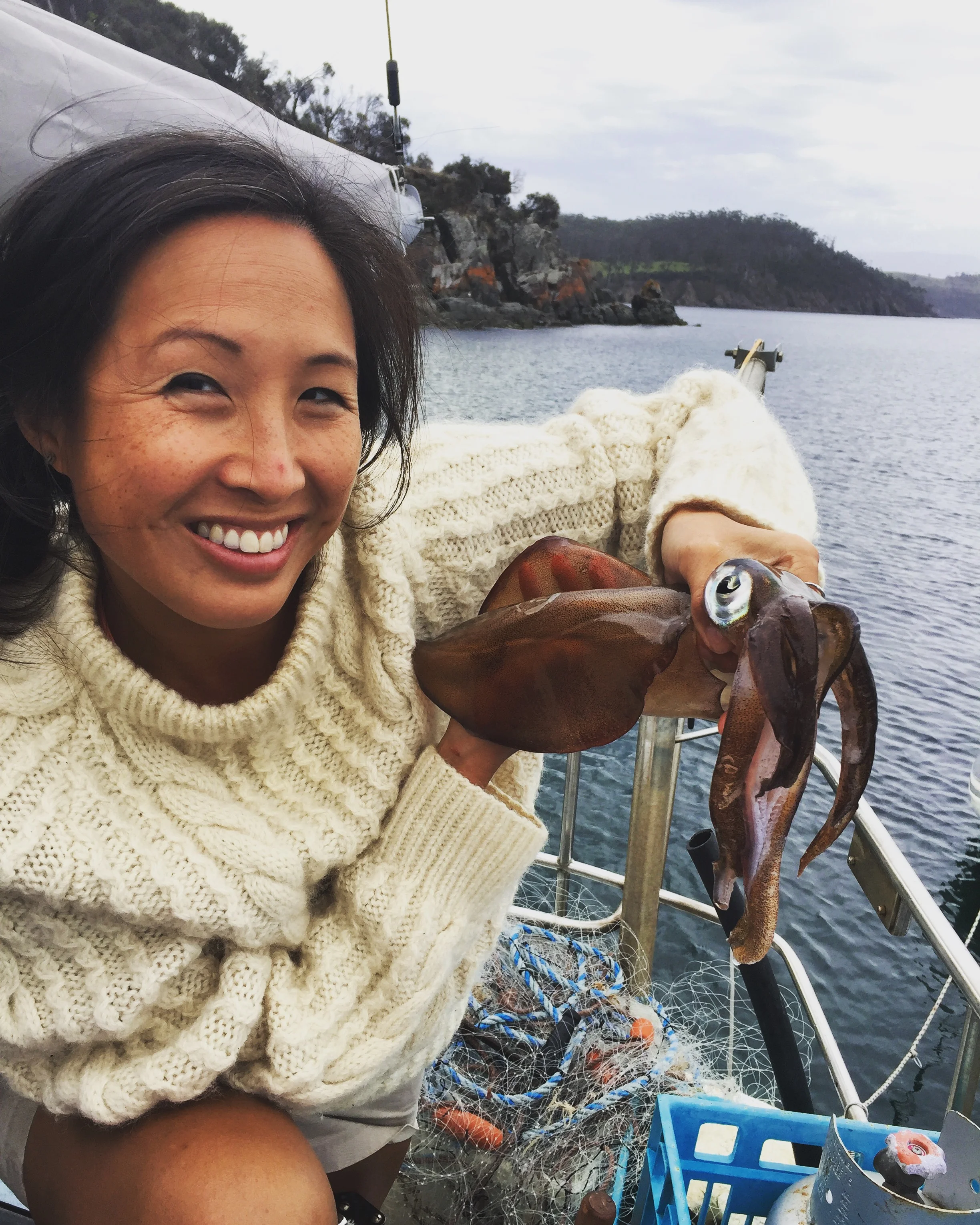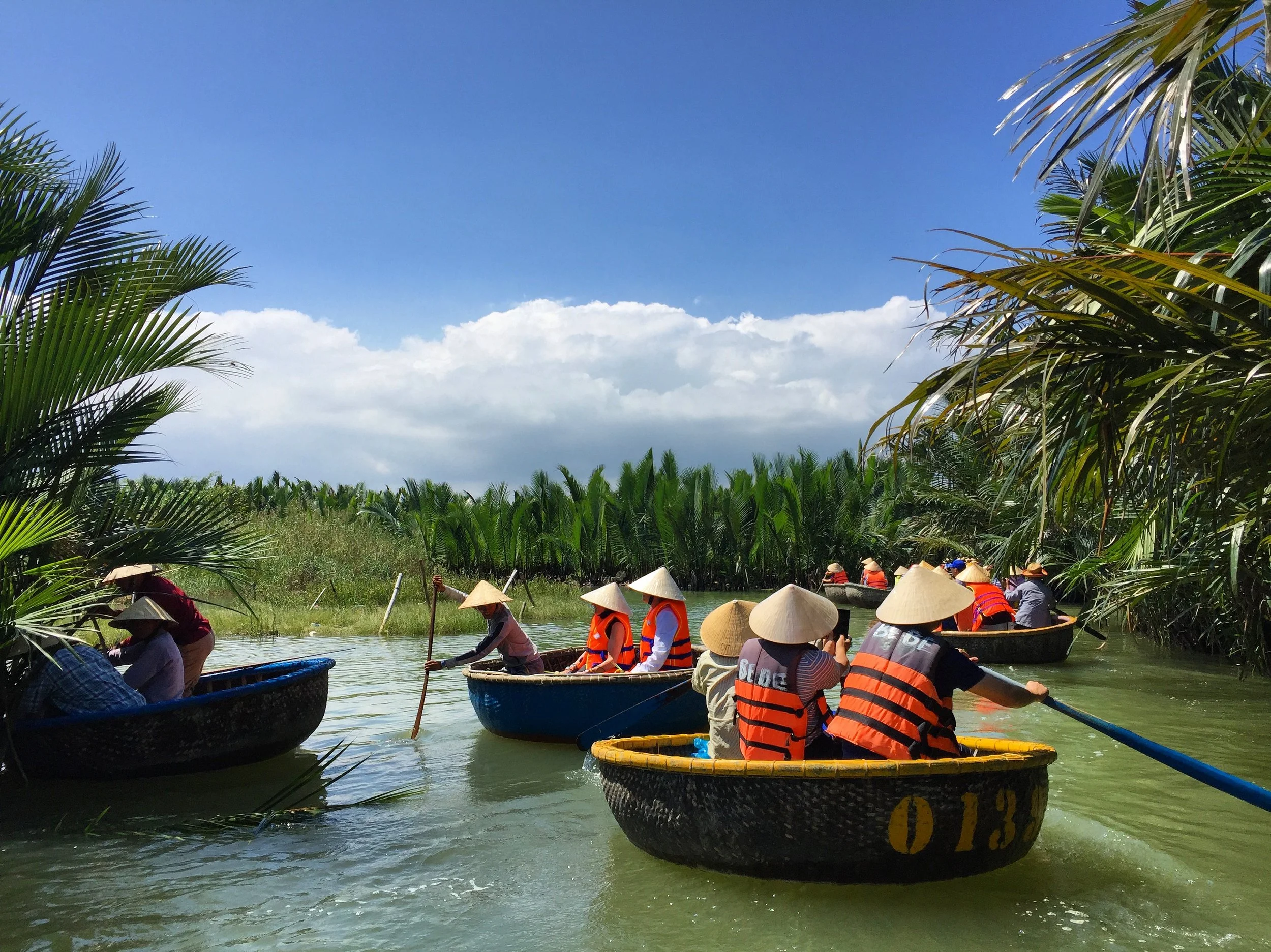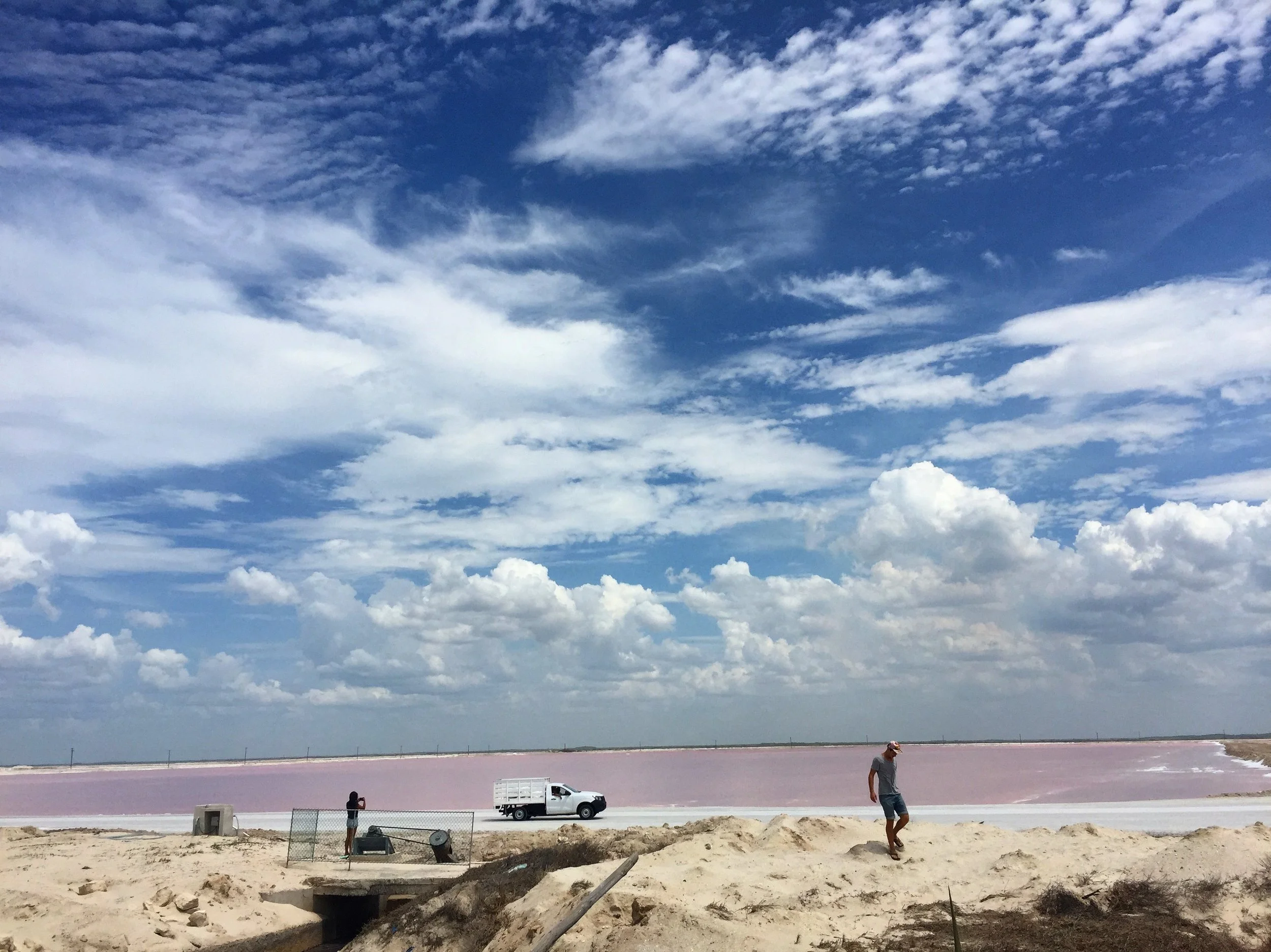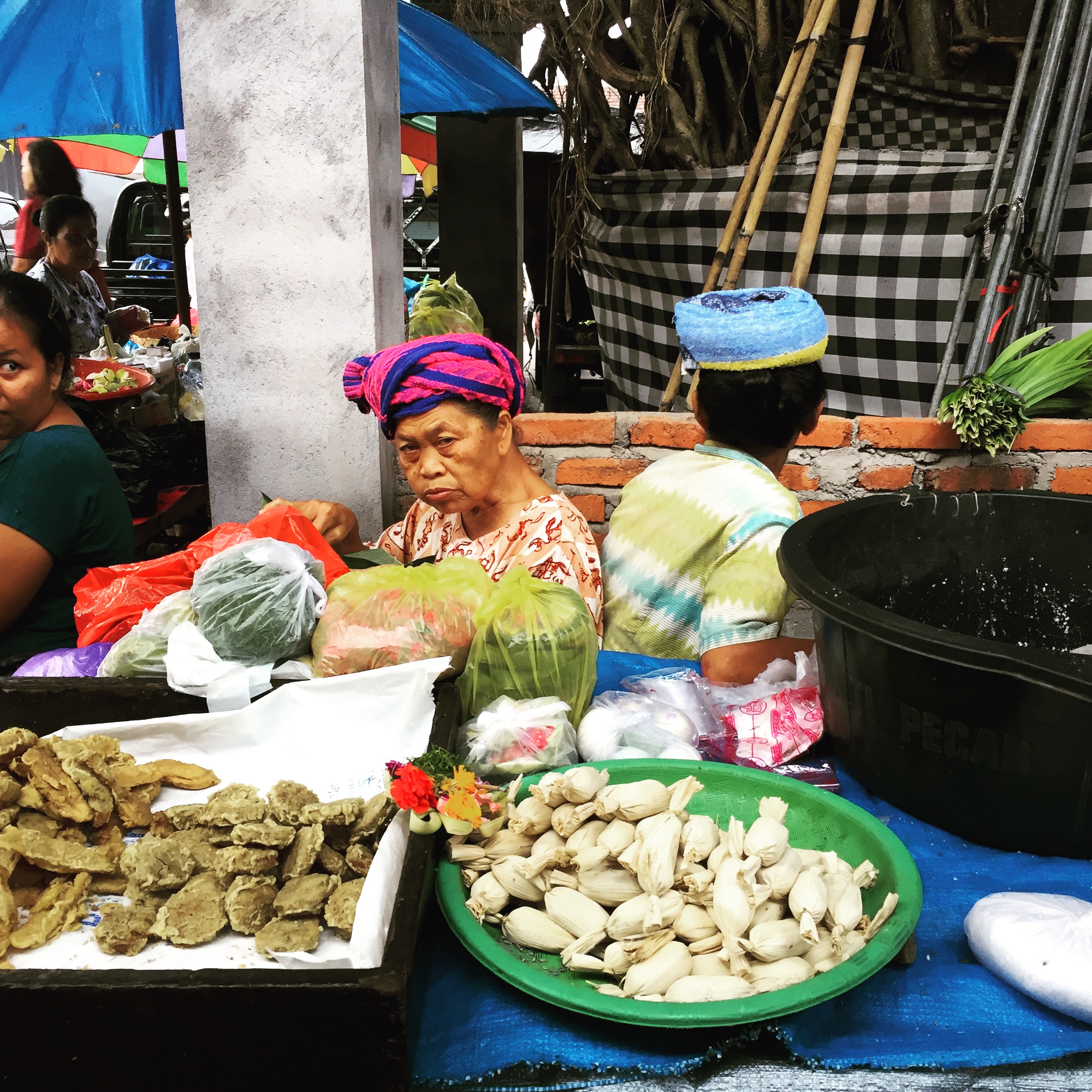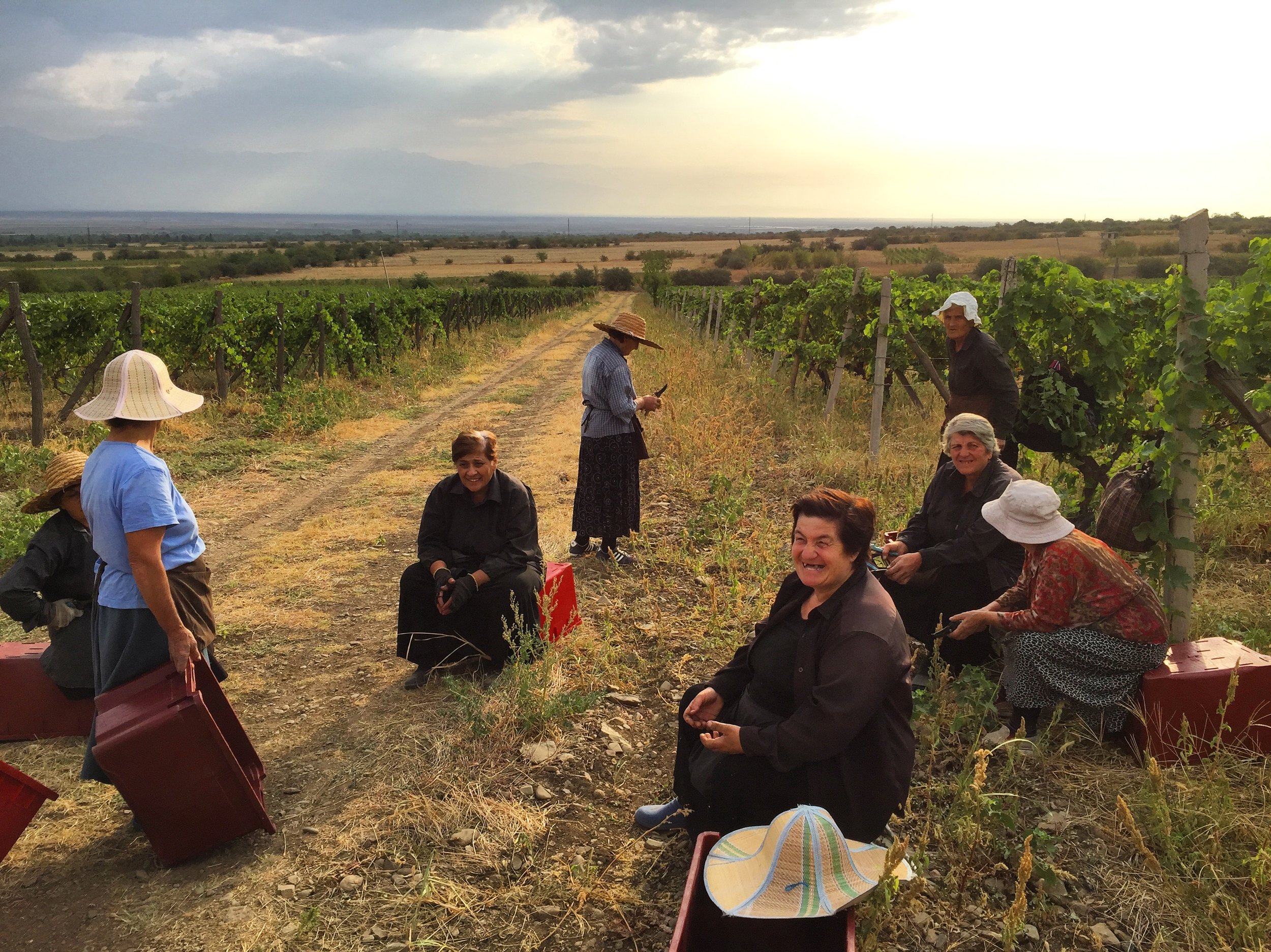Pam yung: A conversation on traveling and bread || Bianca Sanon
Pam Yung doesn’t stay in one place for too long.
Or at least that’s what it’s been like for the past year since her departure from Semilla, her once co-owned Michelin-star tasting menu restaurant in Williamsburg, Brooklyn, that has been closed since March of this year. While she has been bitten by the travel bug more than once in her young life, her most recent experiences across the globe seem to have one thing in common: bread.
I had the pleasure of working with Pam at Semilla, as well as the good the fortune of seeing her in action in the kitchen, creating and developing recipes for her all-too-famous bread. Night after night, Pam’s bread was always a part of the guests’ rave reviews about their meal, and it was such an experience to be able to witness the entire process -- from the preparation of the sourdough starter at the end of the night to the guest’s dipping of their last slice in the small remnants of butter and buttermilk. I caught up with Pam during her adventures (I think she was in Bali at the time and still got back to me <3 ) to talk to her a little bit about the wonder that is #pamsbread.
Bianca: How did you first get involved with baking, and what made you find your niche in bread?
Pam: I've always had an interest in baking bread, even way before I started cooking professionally. Even as I was growing up I was infatuated with it, but I generally only had access to relatively shitty bread, to be honest. I think I started with pastry because I also liked to bake, and it just seemed a more practical thing to do, but it's funny how life works and brings you around to something that you were meant to be doing all along.
Even when I first started in pastry, I'd always spend my days off eating bread, thinking about doing a stage in a bakery, etc. I met Jim Lahey in my second or third year of doing pastry and asked him how he started out and toyed with the idea of going to Sullivan St, but it never happened. Pastry was pretty exciting and all-consuming.
Through pastry kitchens, I'd made brioche, pan de mie, dinner rolls, and the like, but never really got to the heart of it -- at least, what I would consider to be “it” -- that is, working with wild yeast. That came in 2011, almost by accident. I started working at ISA, and one of the cooks there, Morgan, was making some sourdough bread, and showed me how she did it. I would have to say, I had no idea what I was doing, really, but as time went on, the obsession and interest grew - so much so, that at times, I’d lay awake at night thinking about it.
I really love how it requires some level of precision, but more than anything, it's an intangible sensitivity to something that is alive -- that really attracts me. It was magic the first time I baked a loaf with no commercial yeast, simply just flour, water, and salt - and it is that magic still remains very much alive.
What is the most enchanting thing about making bread? What makes you most excited about it?
In my rambling above, I may have answered this :)
I think, like most things I'm obsessed with, it's the duality of simplicity and complexity. And also, I've always believed you can taste emotion, and I most certainly have had extremely emotional experiences eating and making bread. I have noticed that making/baking bread has been one of my default ways to deal with intensely difficult moments in my life - so it is literally my therapy.
The most exciting thing is that I'll never stop learning, and I'll never stop wanting to make it better. And, the community of bakers that i've had the joy of meeting around the world is incredible.
It’s safe to say that you make some of the best bread in the city. What in your opinion makes your bread so magical?
I'm not sure I have a good answer to this, except that I really, really care, and I want to be able to make that special, sort of transportive experience, if I can, for others, because I've been lucky enough to have had it on a few occasions. I also think about flavor profile and balance, in the way you would a dish (flavor of the levain/acidity, salt, sweet, bitterness etc...).
You’ve had a lot of time away from Semilla since your departure last November. Now that it’s closed, what are you looking for in this next chapter of your career?
I'm looking for projects with real meaning - something that's bigger than itself. Yes, I would love to have and/or be a part of a space or project where we can create beautiful, memorable, and delicious things. But also, through traveling to different parts of the world, working with people from different social strata, cultural backgrounds, and varying levels of experience and exposure, it's really made me greatly appreciate the enormous privilege that I (and many of my peers) have, that we can spend our days worrying about the minutiae of what we do.
I have a real desire to work more with the community - somehow rising above some of these barriers - and reaching and inspiring a larger group of people, whether that means creating an exchange program to give opportunities to others who generally don't share the same privilege, or using food as a means to have dialogues about larger issues of sustainability, hunger, the human condition, racism, sexism, etc. I am not debating the intrinsic value of the act of creating a special, memorable experience for someone in your restaurant, bakery, cafe, etc., but I know I'd like to actively do something beyond that.
Also, I deeply value true connection and collaboration with my talented peers, and really hope to be able to unite some of the incredible minds and hands around the world that I've been so lucky to have met. I know I speak for many of us in the industry when I say there are some huge, gaping holes, and that the present model is inherently flawed, unsustainable, and in many ways, inhumane. We can complain, but it is also in our hands to be the change that we want to see in the world.
So, I guess that's a lot to think about, aside from just cooking, which of course, is always still a challenge and a learning process in of itself.
How can you best describe what it feels like to work in this industry without being tied to just one place?
I've been incredibly lucky to have spent the last 9 months or so traveling and collaborating with friends around the world. Being "tied” to a restaurant can sometimes feel a bit limiting and like a prison for today's chef, chiefly because I think an important part of being a chef for many of us is the opportunity to really get out there to see and experience that which is outside of the four walls of your restaurant: to be on the farm, on the fishing boats, in the communities in which ingredients, ancient recipes, etc., originate/are produced and hopefully still reside.
Tradition and history is such an integral piece of food culture, the idea that one really ought to understand a bit of everything to have some context. Food and cuisine has been the subject of wars, battles, trading, and storytelling, and learning about these things will only serve to enrich a chef personally, and that which he/she makes.
You can attribute so much of your success from your travels, to your stages at some of the best restaurants in the world, to the Jean-Louis Palladin grant where you were able to study grain and bread cultures beyond the US. What has been the most enlightening aspects about your travels?
Perhaps I've touched on this, but I can add that traveling, no matter what your line of work is, or what your life is like, is an opportunity to step outside of your normal routine and oftentimes experience something vastly different. Traveling is truly one of the most humbling of human experiences -- you're often in a place where you don't speak the language, and if you’re lucky you spend time, most importantly, with yourself. I think our culture is unique in that, as Americans, we most often define ourselves by our work or job, and that many of us might feel quite lost without this attribution. But, in other parts of the world, people's lives have a much different purpose - to most, sadly it's that of survival. What we may consider to be a culinary skill we'd like to learn, may simply be the day-to-day means of living for others. So i think it's important to be very sensitive to the different ways in which we live and value our time on this planet.
What advice would you give to others in the service industry, both front and back of house, who are fascinated by the idea of traveling?
I'd say, you don't have to be rich to do it --I was a poor cook for so long, I really didn't have the guts to do it until one day, I decided I had to take the plunge. (Beware: after that, it can be addictive!)
I would say, be savvy, given that with a little research, there are a number of great grants out there that you can apply for. Also, as a cook, you have a skill that you can practice almost anywhere in the world, if you put your mind to it. If it doesn't work out, you can always come home and get another job. And try again.
There is never a price that you can put on the experience of travel. Our industry is worldwide -- you'd be surprised at the hospitality and openness in which you might be received in different parts of the world. DO IT.

